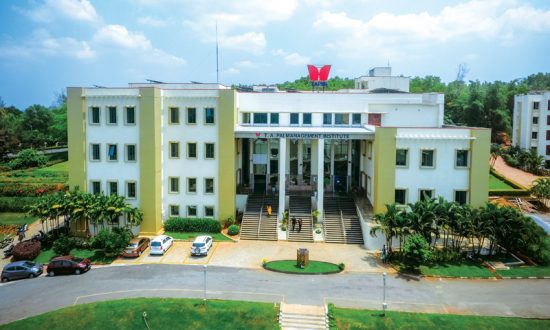T.A. Pai Management Institute, fondly known as TAPMI, is one among the 10 institutes in India and 5 percent of the top business schools worldwide to have been accredited with the Association to Advance Collegiate Schools of Business (AACSB), the oldest and toughest accreditation in the world of business education. TAPMI is also the 5th institution in India to have both the AACSB as well as Association of MBAs (AMBA) accreditation. Since its establishment in 1980, TAPMI has evolved as a center of excellence for academics, research and executive education.
For the past three years, January has been one of the busiest months for students, faculty members and administrators of T. A. Pai Management Institute (TAPMI). This is when TAPMI would host a Winter School program on Bounded Rationality in collaboration with the Max Planck Institute for Human Development (Max-Planck-Institut für Bildungsforschung or MPIB) and the University of Southampton (Soton) Business School. For about one week during the Winter School program, TAMPI would host around 35 – 40 PhD scholars from different countries and offer them a unique forum to share their approaches, discuss their research, and inspire each other.
A one-of-its-kind weeklong program on Bounded Rationality, TAPMI-Max Planck-Soton Winter School aims to provide an interdisciplinary platform for sharing knowledge, discussing the importance and applications of simple solutions to complex problems, and fostering research collaborations between participating scholars and students. “Many activities like seminars, talks, panel discussions, workshops, poster sessions, and social events will take place during the Winter School program. It will allow participants to learn and develop new ideas in their respective research fields facilitated by frequent interactions with the teaching faculty members,” explains Prof. Madhu Veeraraghavan, Director & T.A. Pai Chair Professor of Finance, TAPMI.
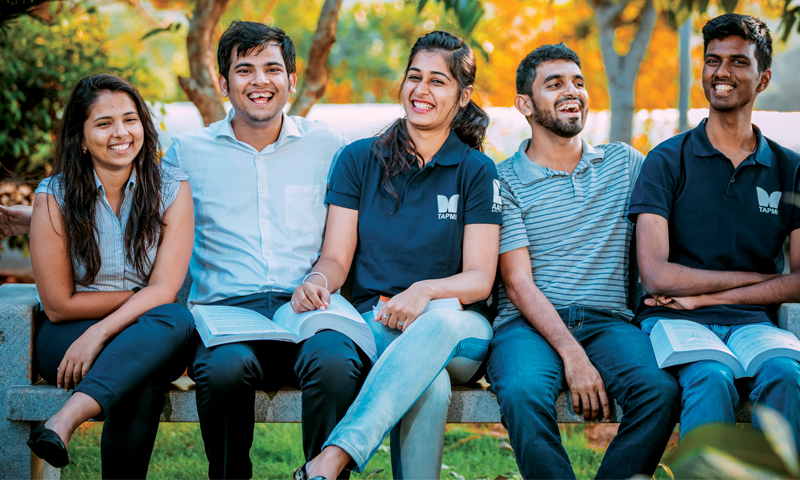
The Winter School that brings enthusiastic researchers of different nationalities under one roof is an excellent opportunity for TAPMI to extend its collaboration with global universities. “I want TAPMI Faculty to have global exposure. The Winter School has increased our chances to do joint research activities with scholars across the globe,” says Prof. Veeraraghavan. In fact, the results are evident in the TAPMI’s research output that has jumped smartly over the past few years. Today, TAPMI is ranked among the top 5 private management schools in the country in research output.
Focusing on Quality
To augment the quality of research papers published in the reputed journals, TAPMI follows the ranking system of Australian Business Deans Council (ABDC), which is considered as one of the best in the world. Currently, TAPMI encourages faculty members to publish only in A*, A, and B category journals listed in the ABDC Journal Quality List. Apart from promoting high quality research, TAPMI provides a very strong infrastructural support to develop an enabling ecosystem.
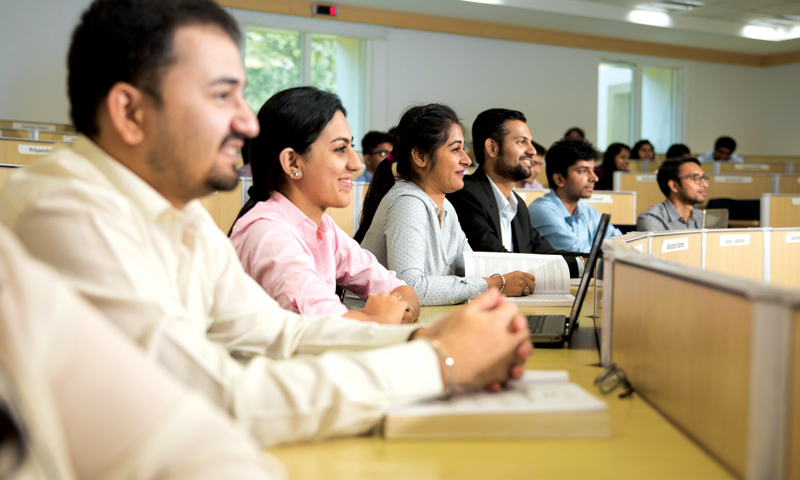
“We have an excellent incentive system where we compensate faculty members for publishing papers in higher level journals. It has been encouraging faculty members to take up research activities in collaboration with global universities as well as leading industry bodies and government agencies. At TAPMI, the job of the faculty members is to create knowledge, then disseminate it and finally practice that knowledge,” claims Prof. Veeraraghavan. The involvement of industry in the process of knowledge creation is what makes TAPMI a notch above of its peers. “Industry people have a lot of important questions, which they want academicians to answer. academically. We are actively collaborating with them to see what we can do to address research questions that are relevant to the investment community,” states Prof. Veeraraghavan.
TAPMI’s collaborations with the CFA Society of India and Global Association of Risk Professionals to give Finance professionals an extra edge in the market is one example of its strong industry connect. Similarly, joining hands with Mu Sigma, an Indian management consulting firm that primarily offers data analytics services, TAPMI has developed a Post Graduate Certificate program in Leadership through Analytics and Decision Sciences (L.E.A.D.). The program envisions the creation of global leaders in the world of decision sciences and analytics who can create value for Fortune 500 customers.
PGDM 2.0 and Industry Ready Workforce
While, most of the business schools in the private sector are turning into teaching shops by adding a surplus number of students in their classrooms, TAPMI has considerably reduced its PGDM intake. Prof. Veeraraghavan shares, “We are no longer going to take 420 people for our PDGM program. TAPMI is all about quality and I want every aspirant who joins TAPMI to get a holistic experience.” TAPMI is now rewriting its PGDM flagship program, which has been there for about 35 years. “We are in on the process of producing PGDM 2.0 to create leadership through value creation. The program will have global immersion, extended leadership opportunities and a lot of space of experiential learning,” adds Prof. Veeraraghavan.
TAPMI is known for going an extra mile to instill leadership qualities in its students. Prof. Veeraraghavan himself runs a program called Student Managed Investment Course (SMIC), where the college management would give Rs. 10 Lakhs to the student whom he picks. “These students will invest the money in the market. 30 percent of the grade is based on the performance of the portfolio, 70 percent is based on the investment diary and weekly presentations that they do. At the end of the course, they have to make a final presentation in front of a very senior industry captain like portfolio managers and analysts and they grade them,” explains Prof. Veeraraghavan.
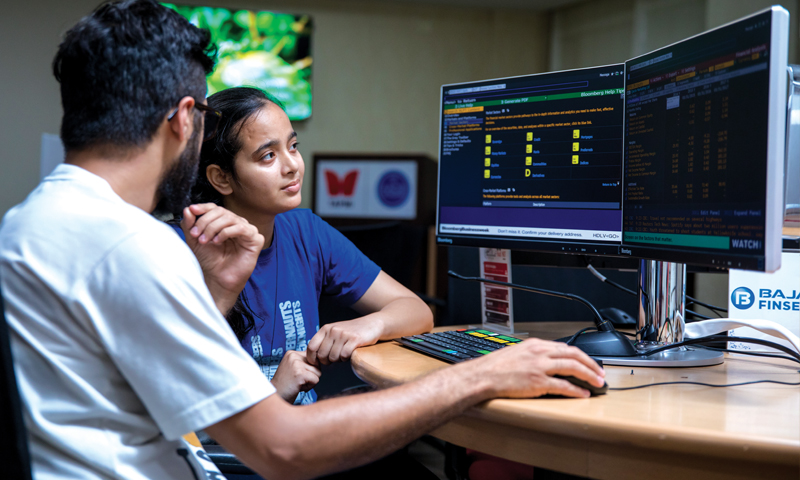
Supporting students with the knowledge and insight into real market situations while bridging the gap between financial theory and practice is TAPMI’s state-of-the-Art Finance Lab, which is powered by 16 Bloomberg and 7 Thomson Reuters terminals. The lab gives students hands-on experience in Investments and Portfolio Management, Forecasting, Risk Management, and understanding of Global Financial Management. Some of the exciting initiatives TAPMI has undertaken in the area of Finance are the TAPMI Journal of Economics and Finance (TJEF), a leading student-run journal in the areas of banking, economics and finance and Samnidhy, the only legally registered Student Managed Investment Fund (SMIF) in India.
“Our objective is simple; no recruiter should spend time on mentoring TAPMIans at workspace. When a TAPMIan is hired, everybody should know that they have a great head on their shoulders,” pinpoints Prof. Veeraraghavan. He adds, “At the end of the day, TAPMIans are global citizens with great ethics, values, integrity and committed to the community in which they live. They understand that they not only have to play roles in corporate India, but also must serve in NGOs and other social structures.”
TAPMI is an advanced signatory of the Principles of Responsible Management Education (PRME) which is a United Nations (UN) – supported initiative and the largest organized relationship between the UN and business schools across the world. Being a signatory to PRME, TAPMI has made a commitment to advancing values such as sustainability, responsibility, and ethics in teaching, research and thought leadership. “We have introduced a new course called SEVA (Society, Environment, Values and Attitude). As a part of this program, every TAPMIan needs to go to villages and do a social project and address the social problem by giving a business solution. Indeed, leadership is also about humility. I want every TAPMIan to be assertive and humble,” summarizes Prof. Veeraraghavan.
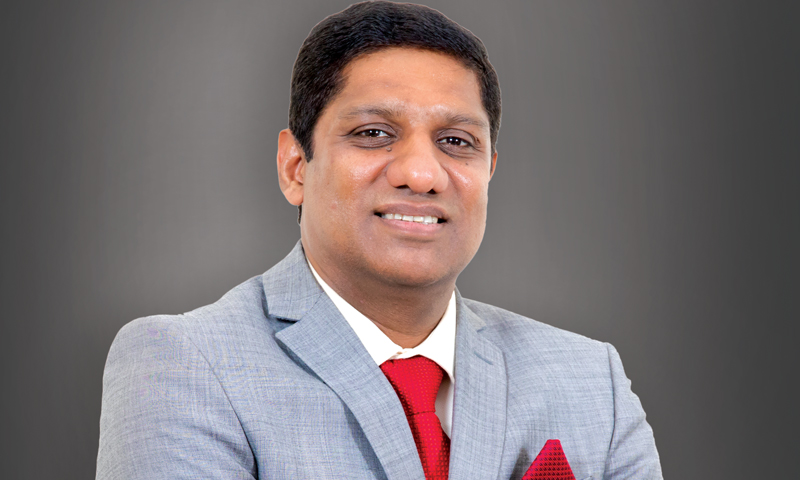
Prof. Madhu Veeraraghavan, Director & T.A. Pai Chair Professor of Finance
Prof. Veeraraghavan, who joined TAPMI in June 2013, obtained his B. Com from University of Mumbai and an MBA (Finance & Investments) and PhD (Finance –Asset Pricing) from Australia. Prof. Veeraraghavan was instrumental in setting up the Largest Finance Lab at TAPMI with 16 Bloomberg and 7 Reuters terminals. He has held positions at The University of Auckland Business School and Monash University, Melbourne before joining TAPMI. He has published over 60 papers in international journals and has presented his work in top conferences in finance and accounting.




